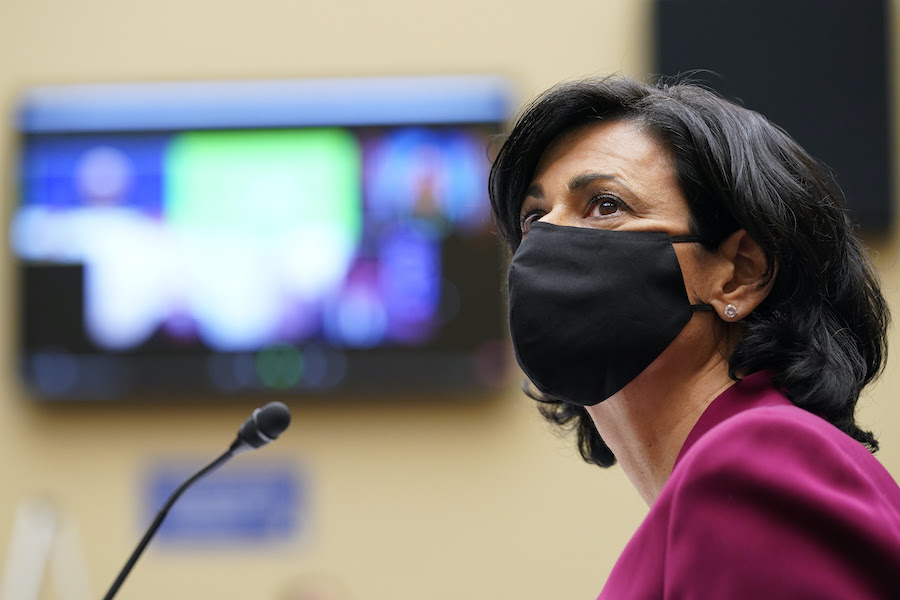The Centers for Disease Control and Prevention is backing the roll out of Moderna and Johnson & Johnson COVID-19 vaccine boosters in line with the Food and Drug Administration's authorizations issued Wednesday. The CDC is also supporting a mix-and-match approach to booster vaccination.
CDC director Rochelle Walensky called the recommendations an "example of our fundamental commitment to protect as many people as possible from COVID-19."
The announcement came just hours after the CDC's vaccine advisory committee voted unanimously in favor of booster doses.
For Moderna, the panel said a booster should be given to people on the same terms as the Pfizer-BioNTech booster. That would cover people 65 and older, people 18 and older in long-term care settings and people 50 to 64 with relevant underlying medical conditions. The booster may be given to people 18 to 49 years with certain medical conditions and to people 18 to 64 who have COVID-19 risks related to their work or who live in certain institutional settings.
For Johnson & Johnson, the panel's advice was simpler: A booster is recommended for people 18 and older at least two months after their initial immunization.
A CDC presentation and draft voting language said that the same vaccine used for initial immunization should be used as a booster dose but that a mix-and-match approach is OK when the primary vaccine isn't available or a different vaccine is preferred.
During the committee discussions, several members pushed back against this preference for boosting with the same vaccine. They argued that a more permissive approach to mix-and-match would ease the administration of booster doses.
After a brief break late in the deliberations, CDC staff returned with revised voting questions that were neutral on which vaccine should be used as a booster for the J&J and Moderna vaccines. The revised questions don't explicitly mention which vaccine should be used as a booster, which clears the way for mix-and-match boosting without restrictions.
According to the CDC, more than 189 million people in the U.S. are fully vaccinated, about 57% of the population. Hospitalization rates are nine to 15 times higher in unvaccinated adults compared with vaccinated adults, according to CDC data.
Still, there are reasons to think that boosters could be useful in some groups of people.
There has been a drop in Moderna's effectiveness against infection with the coronavirus over time and in the face of the delta variant. Protection against hospitalization has remained generally strong, though there have been some declines seen in older people.
For the J&J vaccine, the protection against infection and hospitalization has been pretty steady, the CDC pointed out. But the vaccine has been less effective overall than the Moderna and Pfizer vaccines, so a booster can push protection from the J&J vaccine to a higher level.
The committee wrestled with the trade-off in risks and benefits for boosters in some groups. People 65 and older have the most to gain and relatively little increased risk. For the Moderna vaccine, protection has remained pretty strong for younger people, and their risks for heart inflammation are higher, especially in males.
For the J&J vaccine, there were concerns about rare blood clots following vaccination, which are a higher risk for younger women. But there are benefits from a booster overall because of increased protection from the second dose.








